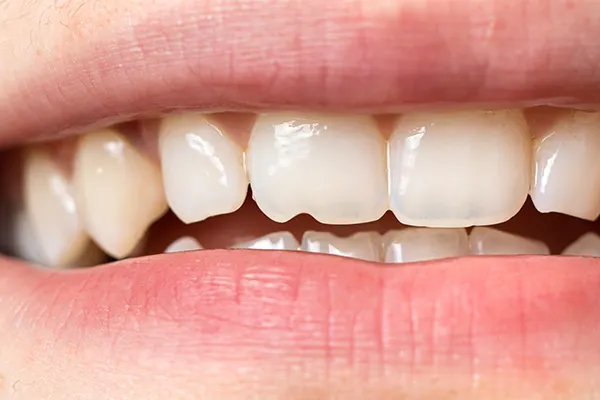Dental Bonding Richmond VA There are hundreds of reasons one would go to a dentist, and one of the most common is dental bonding. There are hundreds of reasons one would go to a dentist, and one of the most common is dental bonding. It is a primarily a cosmetic dentistry procedure that helps improve your smile while restoring some functionality to your teeth that were injured or damaged to injury, cavities, or anything else. What is Dental Bonding?Dental bonding refers to using a composite resin material to improve your smile. The material is the tooth’s color and is used to repair cracks, close gaps, and rebuild chipped parts of the tooth. It is entirely reversible and requires minimal planning and preparation, unlike other procedures that offer a similar function, like dental veneers or dental crowns. Dr. T. James Dix will perform dental bonding on their patients to fix small discrepancies in the teeth, which are not major concerns health-wise, but they severely impact the smile of the patient, and in turn, their confidence too. Sometimes, the patient has trouble biting or chewing because the chips in their teeth cause sensitivity, or food can also accumulate in the tooth gaps. Dental bonding, despite being a simple procedure, can solve major concerns for the patient and restore their confidence. What is the Dental Bonding Procedure?The procedure for dental bonding is similar to many other dental procedures.
The procedure leaves the patient with a perfect smile and completely functional teeth. Dental bonding is a very simple procedure; the whole process will not take more than 15 minutes. Of course, if more teeth need to undergo the same procedure, it may take a bit longer.  Who Needs Dental Bonding?Dental bonding is the perfect procedure for people who have suffered from minor injuries or naturally have small gaps in their teeth that affect their aesthetics. For cavities and more extensive lesions, our dentist will prescribe other procedures. Dental bonding cannot change the shade of your teeth. If you want to whiten your teeth or remove stains, our dentist will suggest bleaching or scaling instead of bonding. Dental bonding also does not work for larger loss in tooth structure or complete tooth exfoliation. Therefore, only people with minor lesions should get tooth bonding. Is Dental Bonding Safe?Dental bonding is a 100% safe procedure. There are rarely ever any adverse effects that can occur due to the procedure. Sometimes, the composite resin or the bonding agent consists of compounds the patient might be allergic to. But usually, the patient tells the team of any allergies they have; the step is covered in the history-taking phase, so our dentist makes sure they use an alternative substance. Other times, some mishaps in the procedure may occur where our dentist cannot prepare the tooth appropriately, or they do not finish the tooth correctly. These issues can all be solved by re-doing the procedure and do not have any long-lasting effects on the patient. Sometimes, after a long time has passed since the patient had their tooth restored, the dental restoration may come off. The patient will then have to come back for treatment. In any case, dental bonding is a very safe procedure, and little to no adverse effects can come from it. Is Dental Bonding Painful?Dental bonding itself is not a painful procedure. However, the patient may experience pain when they injure themselves. Sometimes, when a tooth chips, a nerve in the tooth gets exposed. While the chipped tooth might be fixed with dental bonding, the exposed nerve can cause pain and sensitivity in the patient. Of course, working on a tooth with an exposed nerve could also cause pain to the patient, in which case they need local anesthesia. It will make the procedure completely painless. Alternative TreatmentsOther dental treatments available do a similar job to dental bonding. For example, inlays and onlays restore the tooth’s missing structure. Crowns are also added to the tooth after dental fillings or root canal treatment to restore the tooth’s missing structure. However, these treatments are only utilized when the tooth’s condition goes beyond dental bonding. Veneers of porcelain, zirconia, and other similar materials are also used as an alternative to dental bonding. Again, veneers are usually used when the tooth’s condition cannot be fixed with just dental bonding. It is important to remember that veneers are irreversible and more expensive than dental bonding. If you have completely lost a tooth, you might need a bridge or an dental implant since that would be beyond the scope of dental bonding. Book Your Appointment Today!Even though dental bonding is simple, all dental procedures are different for every patient. You can only get proper guidance when you visit a qualified dentist. If you want more guidance or a proper consultation for dental bonding, you can visit Riverwind Dental or schedule an appointment by calling us at (804) 280-0853! |
Riverwind DentalDr. T. James Dix Dr. Justin Mure (804) 280-08532821 N Parham Rd #102 Richmond, VA 23294-4412 |